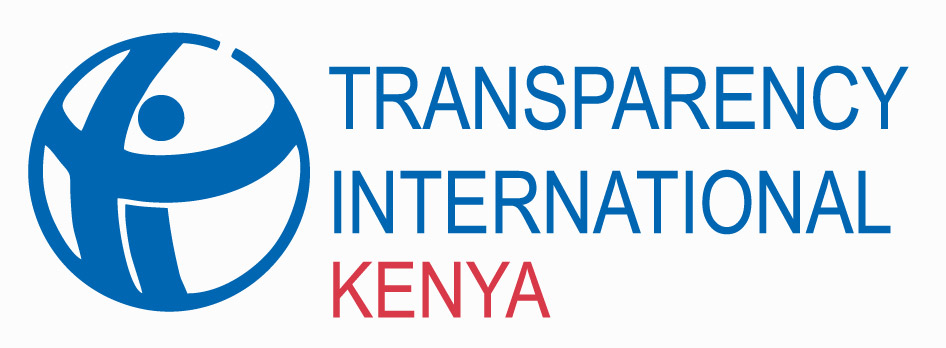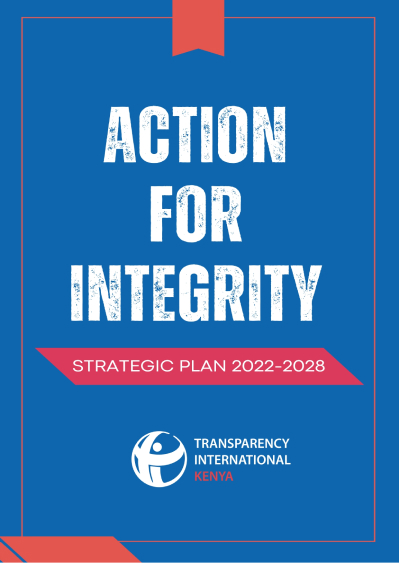By Gerald Okoth & Fidialice Muthike – The writers are Officers at Transparency International Kenya
As the country nears the 2022 general elections, Kenyans should be reminded of Chapter Six of the Constitution of Kenya 2010, which ordains integrity as a guiding value and principle of governance on which Kenya is founded.
Because, year after year, constitutional offices, including the Commission on Administrative Justice, the Ethics & Anti-Corruption Commission, the Office of the Auditor General, and the Controller of Budget have continued to raise concerns over increasing incidences of constitutional violations in the context of integrity and prudent use of public resources, begging the question if Kenya is short of leaders of integrity.
Barely three years after the 2017 general elections, three Governors including, Ferdinand Waititu, Mike Sonko and Mohamed Abdi, Governors of Kiambu, Nairobi and Wajir Counties respectively were impeached on grounds of gross misconduct, violation of the constitution and corruption allegations. A couple others, including Anne Waiguru, Paul Chepkwony and Martin Wambora of Kirinyaga, Kericho and Embu counties respectively have survived the impeachment process, which is a litmus test to the confidence bestowed on leaders by the electorates.
In the National Assembly, the script is the same; several serving MPs have ongoing graft and other economic crimes-related cases in court, whereas others are currently battling cases ranging from hate speech to forgery of academic documents. The executive wing has not been spared either, classic example is the former treasury cabinet secretary, Henry Rotich who is currently battling corruption allegations charges.
Surprisingly, electorates were warned against electing some of these leaders, prior to the 2017 general elections. For instance, the Red Card Campaign in 2017 by the National Integrity Alliance, red-flagged 20 individuals that should not have been cleared to participate in the general elections on grounds of integrity; some of them who were elected, were eventually impeached and others are in court following fresh corruption charges while some are subjects of ongoing investigations.
Listening to the conversations on the street, it is clear that with less than a year to the next general elections, majority of Kenyans are disillusioned with the poor leadership they have witnessed across the board, especially the corrupt leaders. According to survey conducted by Transparency International Kenya earlier this year to gauge citizen’s perception of ethical leadership in Kenya, 82% of the respondents indicated that they were either ‘Very Unlikely’ or ‘Unlikely’ to vote for candidates with a history of corruption. While 75%, believed that a person convicted, accused or under investigation for corruption should not be allowed to contest for a leadership position. The paradox is that these same conversations will likely change in a few months when the inevitable political realignments pitching Kenyans against each other, leaving them with little option but to elect the ‘better thief,’ especially when it comes to highly contested seats.
So, why are Kenyans so hell-bent on trusting ‘political hyenas to watch over meat’? Has Kenya suffered such great moral degradation that the values of honesty, integrity and decency that should bind us as a society no longer matter to majority of the citizens? Could it be due to the tribal politics, or the disinformation and propaganda that runs rife throughout the campaign and electioneering period. Is it that our institutions-such as The Independent Electoral and Boundaries Commission
(IEBC), which is mandated to among others help in sieving persons seeking elective positions have failed us? Perhaps voters’ decisions are fuelled by the uncontrolled use of money during elections that alter public choice process, producing leaders of dubious integrity.
None the less, all is not lost, electorates have the opportunity to ‘right the wrongs’ they have committed in the past election period. 2022 general elections present that perfect opportunity for Kenyans to reject any individual with pending corruption and economic crimes cases, and those who have acted in breach of the leadership and integrity tenets as enshrined in chapter 6 of the Constitution of Kenya 2010. This should be done across all the six elective positions including presidential candidates.
Next year’s general elections present an opportunity for citizen to achieve their desires for leadership that will provide solutions to tame the ballooning public debt, wastage in the public sector spending and wanton plunder of public resources. To the over 1.5 million new voters registered recently by IEBC, 2022 general elections present you with the opportunity to salvage this country by rolling back the scourge of leadership that lacks integrity.
2022 general elections also present an opportunity for IEBC to reinforce the leadership and integrity vetting process for candidates seeking elective positions by enhancing public participation in vetting of candidates. The electoral body should establish a toll-free phone line where voters may lodge their concerns about a candidate’s compliance with Chapter 6 of the Constitution. Also, an online portal disaggregated in terms of each county, constituency and ward where residents/voters and the general public may submit information on a candidate’s integrity and ethics; where such information would enable IEBC to make an informed decision on the candidate’s compliance with ethical standards and requirements.
Kenyans should be a live to the fact that there is a very close nexus between integrity and leadership. Leadership without integrity is a recipe for disaster. Resources are stolen or misapplied; the poor and vulnerable are oppressed while the benefits of the state only accrue to a few. Integrity in leadership would ensure that the public machinery treats everyone with some basic rights and entitlements and that public office is not used for private gain or against the public interest. As such, time is ripe to effect aspirations of the drafters of chapter six of the constitution of Kenya 2010 on Leadership and Integrity.


